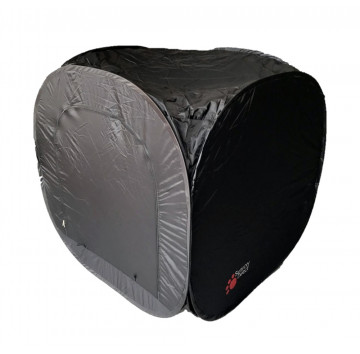By Anjanee
While the holiday period can be an exciting and exhilarating time for many, for those with autism it can be a slightly more tricky terrain to navigate. The festive season brings additional expectations for those who have, or who care for someone who is on the Autism Spectrum, from Christmas shopping and wrapping presents to family gatherings. This also includes parents being equipped to manage their own expectations when it comes to their child’s ability to engage and join in the festivities. Here, we focus on potential problems and practical tips that will hopefully ensure Christmas this year is a festive celebration that caters for everyone!
Christmas Presents
Every parent looks forward to their child skipping down the stairs on Christmas morning and tearing open their present stash under the tree. However, the reality for parents with children who have autism can sometimes be very different and it’s important to know your child may not be interested in standard toys or maybe has difficulty understanding what unwrapping is all about.
Social stories are commonly recommended and used in schools & by families. Social stories are particularly useful in these situations as they will proactively give cues to a given situation and help in understanding a situation and how to anticipate change in routine & surroundings.
In special school, teachers are usually very happy and geared to assist families with PECS (picture exchange communication system). A program commonly and successfully used in schools and colleges to assist with a visual timetable and cues. A picture speaks a thousand words!
Sibling rivalry is not exclusive to neurotypicals as you have probably already established. If you have other children, your autistic child may find sharing problematic and might not understand that not all of the presents under the tree are for them. It might be worth limiting or ring-fencing your child’s presents from the rest to make a clear distinction. However, it’s important to not make your child feel as if they’re doing something wrong this festive season, they’re not, they’re just doing things their way!
Another gift worry this year can be presents given from outside the nuclear family. For this, you could suggest something that is small and inexpensive so the giver can still have the pleasure of giving a present and watching your child’s delight. Gifts based around your child or teenagers interest are usually more readily received, inexpensive fidget toys are always welcomed so try to direct gift-givers to more autism-orientated shops and websites to help find more appropriate presents for your child. A quick scan through their best sellers are good clue providers for presents.
Christmas Wrapping
While most of us will squeal with delight at the sight of an exquisitely wrapped, brightly coloured present, this may prove a problem for someone with autism. Present wrappings can be a real upset, however, there are a few ways you can ensure your gifts are autism friendly. Sometimes a gift that is wrapped in bright and bold festive paper can be a source of stress for a child with autism and they may not want to open it or simply haven’t developed the fine motor skills such as peeling off sellotape and untying bows, which can lead to disinterest or frustration. Here’s how you can wrap in an autism-friendly way:
Cellophane: wrapping gifts in see-through, transparent material gives your child the fun of unwrapping something, the same as their siblings or other family members, but takes away the stress and uncertainty of not knowing what’s inside.
Plain Paper & Picture: by wrapping a gift in muted paper, with a picture of the gift inside displayed on the outer-wrapping helps to keep the fun activity of unwrapping but eases any potential confusion or anxiety.
Sensory Gift Ideas
Sensory Den: Developed to offer an alternative to a permanent sensory room, it is portable, light and very affordable this Christmas. Once open, it provides a safe environment that is ideal for use with projectors and illuminated toys.

Sensory Jar: Light up sensory jars make the perfect stocking filler gifts. These jars can include a selection of fun and stimulating light up toys which are great for use in a dark room or inside a sensory den.

Sensory Ball: These usually come in all different shapes, sizes and colours. Offering a variety of visual and tactile sensations, a sensory ball makes the perfect sensory stocking filler!

Life Skills Sensory Games: Games such as these help to promotes discussion and allows pupils to reach informed decisions, helping them to lead safe and healthy lives. Brightly illustrated, dynamic and fun, they ask questions about personal safety and healthy living – allowing the pupils to play independently.

Christmas Food
For many, the excitement of turkey and a bit of Christmas pudding might be a welcome addition to your diet, however for someone with autism, it could be overwhelming. When you’re in the privacy of your own home, meltdowns are more manageable. However, if you’re inviting over extended family or you’re eating out over the festive period, certain behavioural expectations are anticipated by others and often quite judgemental & critical about how a child should behave at meal times, adding to an already potentially stressful social situation.
However, it helps to be practical and realistic, if your child behaves one way every other day of the year, chances are they’re going to do the same thing on Christmas day. But to ease distress, you could:
Try holiday foods in advance: this helps your child get accustomed to the new smells, sights and tastes of the festive table.
Maintain their normal routine: provide the cutlery, crockery and familiar food they normally have so they can still enjoy something to eat. This can also extend to what they like to wear. Keep them involved in short bursts and lots of positive appraisal.
Practice Christmas Day: this could be as big or as small as you want. You could trial the eating, the presents and even the clothes you plan on wearing if you think this will help your child cope on the big day.
Be aware of things that make loud noises: this could be Christmas crackers and party poppers: Ask if people can avoid using them, or give you or your child a warning before they do. Ear defenders are a good ally.
If eating out at a restaurant: It’s a good idea to inform and prepare the restaurant, informing and explaining your requirements eg where you would prefer to sit eg quiet corner or nearer to a play den, and to be kept informed of kitchen/food delays. Order in advance, maybe also visit the restaurant if possible. Take distraction toys, gadgets, weighted jackets, allow time out away from the table in a noisy environment.
Decorations
The good thing about holiday decorations is the variety of festive forms they come in, so there really is something for everyone. However sometimes decorations have an adverse effect on your Autistic children. Flashing lights, glittery objects and festive sounds can wear down the senses. Here are some general tips that might be worth knowing when decorating your home:
Avoid decorations that may be too stimulating: Flashing lights or having lots of decorations hanging from the walls or ceiling might just be too much. Even if it doesn’t feel as Christmassy as you’d like, it’s important to avoid a sensory overload.
Get your child to choose decorations and help put up decorations: They might find it easier to cope with their surroundings looking different if they made some of the changes themselves.
Slowly decorate: Put the decorations up gradually so your child gets used to them being around. The same goes for taking them down again after it’s all over. Christmas ending is sad for everyone!
Consider decorating just one room in the house: Or keeping the brightest and noisiest things away from the areas your child uses every day. However having one room decorated allows your child to escape to multiple safe, Christmas-free zones.
Holiday Shopping
Be the festive early bird: The great thing about stores starting the holiday shopping season so early is that it gives those with autistic children a pre-boarding pass. You can avoid the crowds and craziness and take your time. Everyone can benefit from this level of preparation.
Do as much as you can online: whether it’s online or via a catalogue that comes through the post, even non verbal children can point or circle a gift in a magazine.
Spend in manageable chunks: It’s pretty well known that some autism-specific toys are not the cheapest things on the market. However, if you spend £50 on one toy each month over 3 months it’s much more manageable.
Consider headphones and ear defenders: It’s important to ask yourself that, if your child gets overwhelmed by noise, crowds and lights, would headphones help to cut out some of the stress? It’s also worth considering, is there a calm and quiet place you could bolt to in the shop if things get tricky? Always have an escape route.
Following some of the coping strategies we’ve outlined for this festive period, will hopefully complement your own coping experiences – enabling a much needed respite from the mundane and a more relaxing and joyful holiday. However, autism isn’t about finding a solution or ‘dealing’ with it. It’s about taking each day, week and month at a time and making slow, but meaningful gains with your child, that benefit the whole family.
***
Anjanee is the founder of Sensory Direct, a business which was born out of need and necessity following their son, Ethan’s, diagnosis of autism in 2003. With a strong desire to start a company that was aimed at helping others with similar difficulties, they’ve now been designing, manufacturing and supplying sensory products and toys for those with Autism and special needs, to schools, the NHS, occupational therapists and countless parents, since their origins in 2005.
Header: Butterfly Tree – Kevin Hosseini







Can you please tell me the name of the person who painted the oil painting of the Christmas Tree on this site? Many thanks.
Liz, that is Kevin Hosseini http://www.kevingallery.com – inquiries of his art can be made at theartofautism@gmail.com